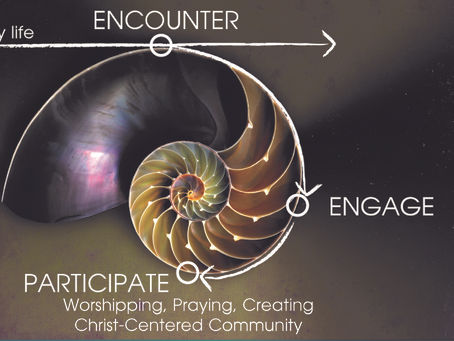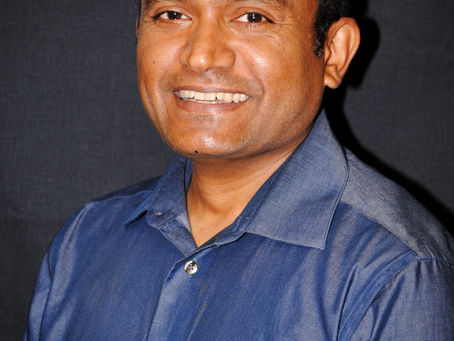top of page
Search


Drawn to the Center
What is worship? You might say, “to sing sacred music,” “to hear the Bible preached” or, “to be reminded of God’s love each week.” ...

Pastor Karl Hauser
Jul 29, 20222 min read


Transformation
It is July. A hot June already has set us longing for pools, iced drinks, and sunscreen. Summer also changes how we dress, how we plan...

Pastor Karl Hauser
Jul 1, 20222 min read


Waterpark in Crestwood!
Who wants a fun way to cool down in the evening? Southminster Presbyterian Church is offering up a fun evening of water-themed adventure....

Pastor Karl Hauser
Jun 14, 20221 min read


COMMUNITY PICNIC!
Picnic is free to the public. 11:30am Sunday June 12. Hamburgers and hotdogs with a variety of side dishes, desserts will be served in...

Pastor Karl Hauser
Jun 6, 20221 min read


When God Calls Us To Participate
On one Valentine’s Day, when I was a kid in elementary school, the kids were given the option to participate or not. If someone wanted...

Pastor Karl Hauser
Jun 1, 20222 min read


The Fun Times Keep on Coming
It is hard to believe the school kids are all a year older, and that summer is already here. We have had a fun year of parties, and...

Pastor Karl Hauser
May 31, 20221 min read


How do You Engage?
What is something fun you like to do? Hobbies like gardening, playing games, woodworking, or watching baseball? The most important part...

Pastor Karl Hauser
May 6, 20222 min read


Encountering the Divine Christ
Discipleship Corner: Encountering the Divine Christ Have you ever had a “God Moment,” a “divine appointment” or a “sacred experience?” ...

Pastor Karl Hauser
Apr 1, 20221 min read


Sailboat Church
Your Session, the leadership board of Southminster, is reading a book called Sailboat Church by Joan Gray. This book differentiates...

Pastor Karl Hauser
Apr 1, 20222 min read


How do we Grow Southminster?
Finishing up the Esther Sermon series makes me ask the question of myself and our church, “Has God brought us here for such a time as...

Pastor Karl Hauser
Mar 3, 20222 min read


The Caste System in India
Jacob Simpson shares about the Caste System in India
Sarah Bock
Jan 27, 20221 min read


Christmas Memories
When I was a kid I remember hanging up Christmas lights and wondering “how many strands will work?” Do you still have the old traditional...

Pastor Karl Hauser
Dec 16, 20212 min read


Levels of Thanksgiving
In November we are reminded of being Thankful. You will probably list the normal expected litany of “family, friends, health, job,...
Pastor Karl
Nov 8, 20212 min read
The (new) Favorites
One of my favorite movies is Clue, a 1985 comedy based along the lines of the board game of the same name. There is a Professor Plum...

Pastor Karl Hauser
Sep 9, 20212 min read


Video Streaming Project
What is the new Video Streaming Project in our sanctuary? I am glad you asked. You have probably heard about the recent fundraising...

Pastor Karl Hauser
Aug 9, 20214 min read


Annual Rummage Sale
Please, NO mattresses, carpeting, couches, computer monitors, keyboards, printers, copy machines, TV’s, VCR tapes, filing cabinets. Early...

Pastor Karl Hauser
Aug 5, 20212 min read
Annual Meeting - and yes, it was exciting
What a great congregation that we have endured a year unlike any other and come through it with strong ministries, strong faith, and hope...

Pastor Karl Hauser
Feb 23, 20212 min read


Special Music for a Special Day
When we look at our lives, we can wonder "how did I get here?" Well, the answer is that we got here one day at a time. Well today, if you...

Pastor Karl Hauser
Jan 13, 20212 min read


Merry Christmas
Our family was blessed this past year that we found out just before the lockdown that Jennifer was pregnant! What a harrowing time to...

Pastor Karl Hauser
Dec 22, 20201 min read


Walk Through Trunk-or-Treat!
ITS A WEEK AWAY! On October 29th dress up and Walk thru our front parking lot for some Halloween fun along a marked path for our Walk...

Pastor Karl Hauser
Oct 22, 20201 min read
bottom of page